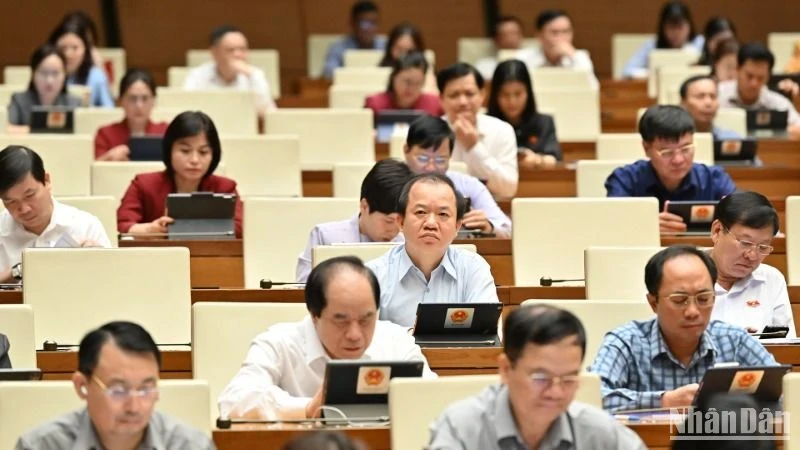
Identify criteria for loss-making businesses to avoid profiteering
On the morning of May 12, the National Assembly continued its program. The 9th session discussed in the hall a number of contents with different opinions of the draft Law on Corporate Income Tax (amended).
Speaking at the discussion, delegate Dao Chi Nghia ( Can Tho ) expressed his basic agreement with the contents of the National Assembly Standing Committee's reception, explanation and revision of the draft law.
However, the delegate raised the issue related to Article 16 regulating loss transfer. Mr. Nghia stated: "In practice, there are many cases where businesses have intentionally reported losses to evade taxes, but detection and handling are very difficult and not timely."
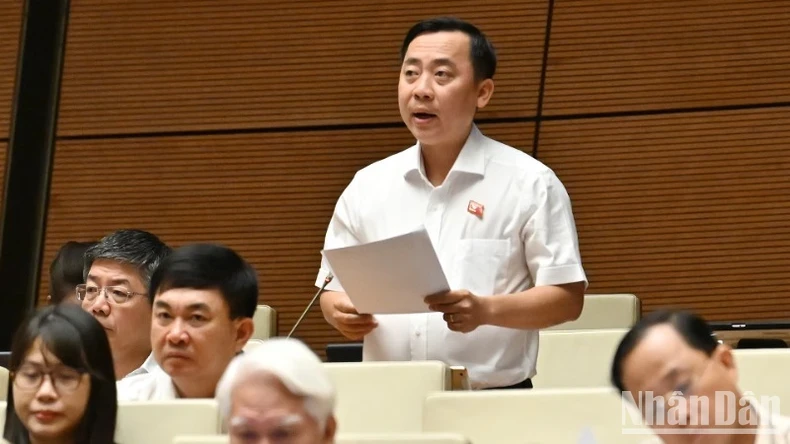
At the same time, the regulation on the period of loss transfer must be calculated continuously, not exceeding 5 years from the year following the year in which the loss occurred. In fact, for enterprises enjoying a tax rate of 15 to 17% on revenue from 3 billion to 50 billion, this regulation is not suitable for reality.
Therefore, the Can Tho delegation representative suggested that the drafting agency study and supplement regulations on criteria and conditions for determining loss-making enterprises as a basis for deduction from taxable income, ensuring objectivity, transparency, fairness, and legality, avoiding exploitation for tax evasion and profiteering.
To avoid the situation where businesses use tricks to intentionally cause losses, take advantage of loss transfer to reduce taxable income, and at the same time make businesses with poor business results try to improve their business situation, delegate Nghia recommended that the loss transfer time should be adjusted appropriately so that the regulations on loss transfer are truly effective in supporting businesses.
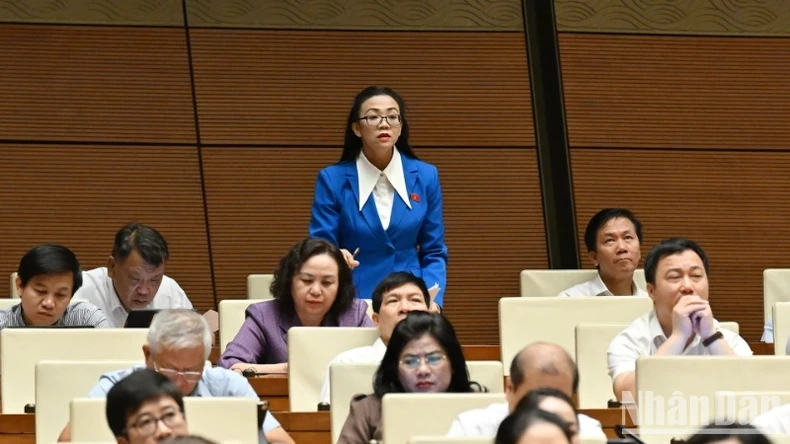
Sharing the same concern about the issue of loss transfer, delegate Trinh Thi Tu Anh (Lam Dong) proposed to remove the content that the time allowed to transfer losses, calculated continuously, should not exceed 5 years, starting from the year following the loss.
According to the female delegate, the Enterprise Law does not stipulate that enterprises that have suffered losses for several consecutive years must declare bankruptcy. Many enterprises continue to invest in production even though they have suffered losses for 5 or 7 years, so the Enterprise Income Tax Law cannot stipulate that losses can be transferred continuously, not for more than 5 years.
Tax authorities must wait until a business has revenue before they are obliged to pay corporate income tax. Therefore, delegates proposed that it should be revised so that businesses with losses can carry their losses over to the following year, and this loss will be deducted from taxable income.
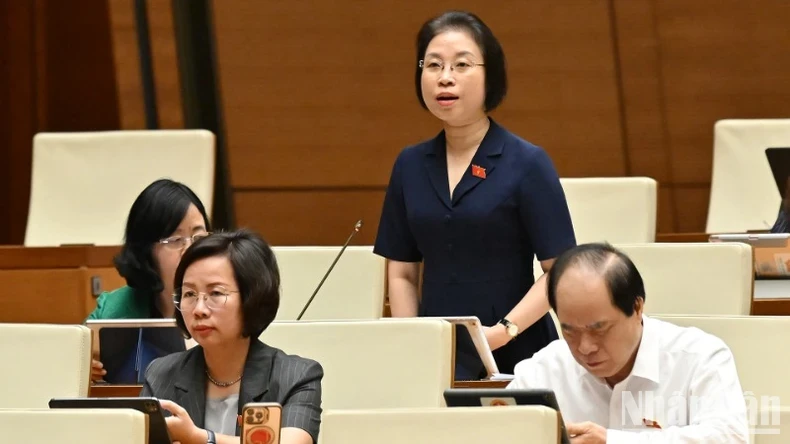
Speaking at the meeting, delegate Pham Thi Thanh Mai (Hanoi) said that, for high-tech and innovative enterprises in particular, the time for transferring losses should be longer than in the draft law.
However, the delegate also stated that the National Assembly needs to set out the principles for how much to increase, and the rest is up to the Government to decide depending on the specific stage and report to the National Assembly Standing Committee for consideration and approval, ensuring the principle that the National Assembly implements the delegation of power to the Government to propose to the National Assembly Standing Committee to ensure timeliness.
Proposal to expand the scope of corporate income tax exemption
At the meeting, delegates also expressed their interest in the issue of tax-free income for research and development activities. Delegate Nguyen Duy Minh (Da Nang) said that this provision in Clause 4, Article 4 is a positive step in encouraging investment activities.
However, delegates also said that the maximum tax exemption period of no more than 3 years is too short compared to the investment and development cycle of technology, and is not enough to motivate businesses to invest long-term in research and development activities.
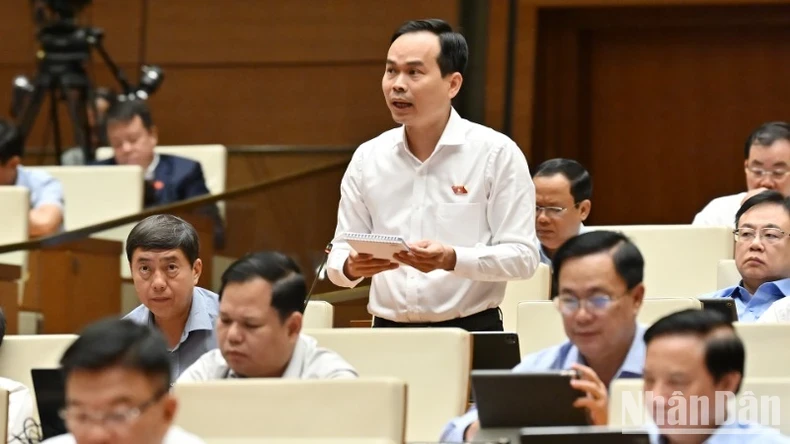
“In reality, many research and development projects, especially in the fields of renewable energy, high technology, semiconductors and artificial intelligence, take from 5 to 10 years to complete and commercialize. Therefore, I propose that in the draft, income from this account be exempted from tax for a maximum of 5 years,” the delegate suggested.
In addition, Mr. Minh also proposed that the drafting agency research and promptly institute policies on corporate income tax exemption in Resolution 68 of the Politburo.
Accordingly, the subjects exempted from corporate income tax are expanded for income from transfers, capital contributions, capital contribution rights to innovative start-up enterprises and self-researched and implemented projects of enterprises.
Delegates noted that the draft law does not have specific incentives for green and sustainable industrial enterprises. Clause 10, Article 4 stipulates tax exemption for enterprises from transferring carbon credits and green bonds, but this is only a very small part of the entire green industrial activities, important areas such as renewable energy and sustainable production waste management have not been mentioned.
Therefore, delegates proposed to add to Article 4 in the direction that enterprises investing in renewable energy, waste management, sustainable production and environmentally friendly technology will enjoy corporate income tax incentives.
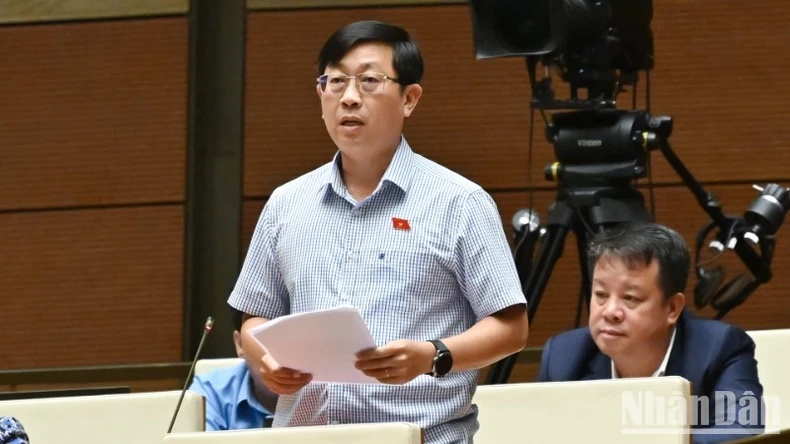
Also contributing to the regulations on tax exemption and reduction in Article 14, delegate Nguyen Huu Thong (Binh Thuan) said that the maximum tax exemption period of 4 years and 50% tax reduction for up to 9 subsequent years as stipulated in Clause 1, Article 14 are not really suitable for projects with large investment capital, long capital recovery period and high risks.
According to Mr. Thong, this policy may not be attractive enough to attract high-quality capital. Therefore, the delegate proposed to increase the maximum tax exemption period to 6 or 8 years and reduce 50% of the payable tax for a maximum of 12 to 15 years for new investment projects with capital of over VND30,000 billion or having spillover effects on innovative technology, creating jobs for over 1,000 workers, to encourage corporations to invest long-term in Vietnam.
Add outstanding preferential policies to facilitate businesses
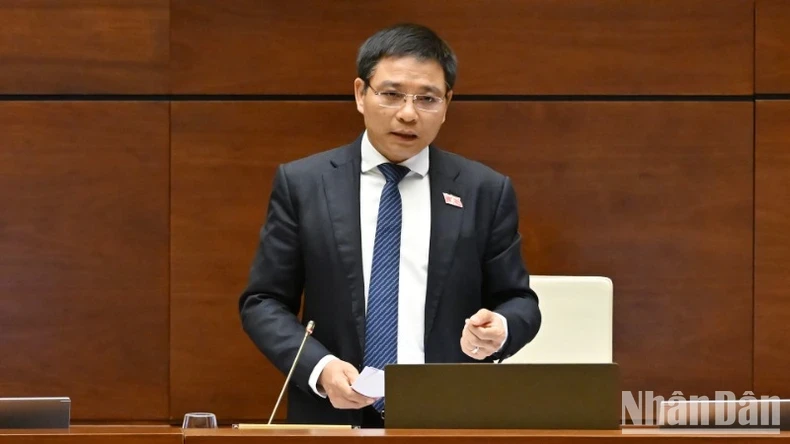
Speaking at the end of the session to explain and receive opinions from National Assembly deputies, Minister of Finance Nguyen Van Thang said that, regarding the review of the system of tax incentives to implement the policies and orientations of the Party and State on the development of priority sectors and localities, at the 8th Session, on the basis of reviewing current tax laws, investment laws and also based on the general international trend to promote the effectiveness of tax policies and tax incentives, avoiding the situation of widespread incentives causing erosion of the tax base, the Government has proposed many solutions to perfect the corporate income tax incentive policy including beneficiaries of preferential sectors and localities.
In particular, focusing on encouraging tax incentives for the production of high value-added products, science and technology, digital transformation, innovation, promoting green economy, environmental protection, agricultural development, farmers, rural areas, promoting the development of service activities, public careers and promoting investment in areas with difficult socio-economic conditions and areas with special difficulties.
Regarding the review and rearrangement of corporate income tax incentives, the Minister said that the draft law has also been reasonably calculated so that on the one hand it does not affect the overall incentive policies currently applied, while at the same time there are also new outstanding incentive policies to support and facilitate businesses to expand investment activities in fields and areas that need to be encouraged according to the policies of the Party and the State.
At the same time, the drafting agency has proactively reviewed international experience as well as trends in applying preferential policies of countries around the world, especially in the context of implementing Pillar 2 on global minimum tax, to develop appropriate preferential policies to continue to effectively attract foreign investment capital, while still ensuring the encouragement of participation of other economic sectors, including the private economy.
“In the process of implementing Pillar 2 on global minimum tax, we must calculate and advise the Government and competent authorities on how to implement support for businesses, as well as research methods for indirect support and ensure that we do not violate the commitments of international agreements that Vietnam is participating in,” the Minister stated.
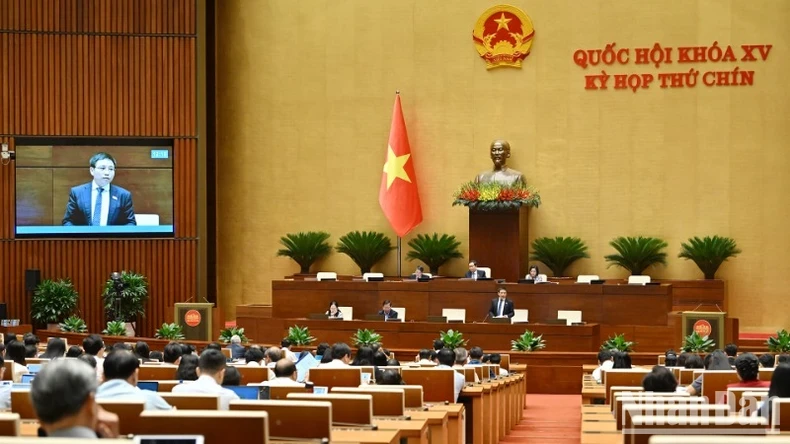
Regarding ensuring the consistency and synchronization of tax incentive policies, Mr. Thang said that, in principle, tax incentives should only be stipulated in tax legal documents and at the same time, it is necessary to stop integrating tax incentive policies in specialized laws to ensure comprehensiveness, consistency and ease of implementation when political systems as well as businesses implement them.
The Minister affirmed that, taking into account the opinions of National Assembly deputies, the drafting agency will continue to review specialized laws with provisions on corporate income tax, including the laws passed by the National Assembly at the last session of 2024 as well as the laws expected to be submitted to the National Assembly for approval at this session, the last sessions of the year with the overall general incentive policies such as the Investment Law, the Law on Support for Small and Medium Enterprises, etc.
Regarding the provisions on tax incentives currently stipulated in the Law on the Capital and the Resolutions of the National Assembly on piloting specific mechanisms and policies for certain localities, sectors and fields, the Government has accepted and reported to the National Assembly to continue implementing these documents without raising the issue of adding them to the draft Law on Corporate Income Tax this time to apply generally to enterprises in sectors and fields nationwide.
Source: https://baolangson.vn/dai-bieu-quoc-hoi-lo-ngai-tinh-trang-doanh-nghiep-co-tinh-bao-lo-de-tron-thue-5046821.html



![[Photo] Prime Minister Pham Minh Chinh attends the event "Digital transformation of the banking industry by 2025"](https://vphoto.vietnam.vn/thumb/1200x675/vietnam/resource/IMAGE/2025/5/29/0e34cc7261d74e26b7f87cadff763eae)


![[Photo] Prime Minister Pham Minh Chinh receives leaders of Excelerate Energy Group](https://vphoto.vietnam.vn/thumb/1200x675/vietnam/resource/IMAGE/2025/5/29/c1fbe073230443d0a5aae0bc264d07fe)



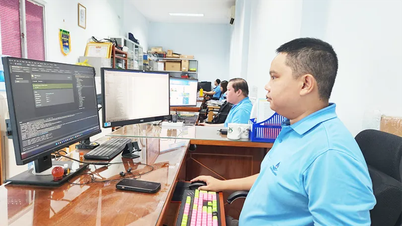



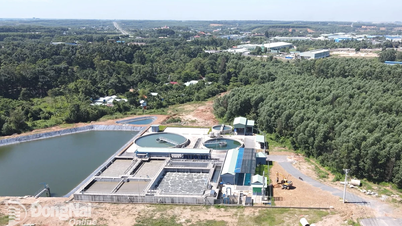
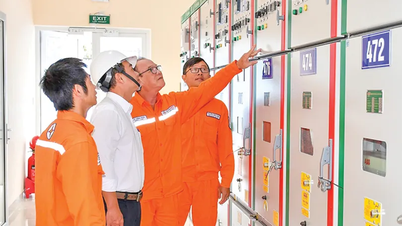





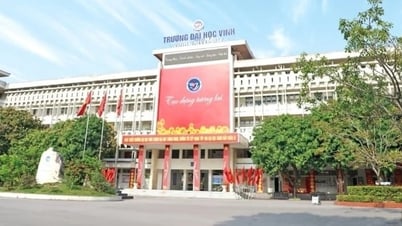































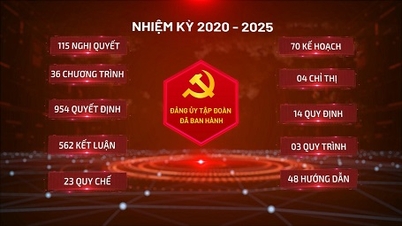


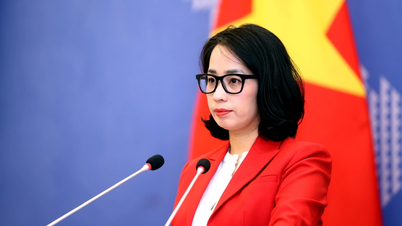







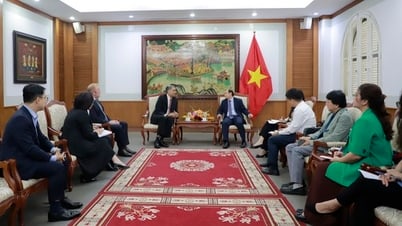
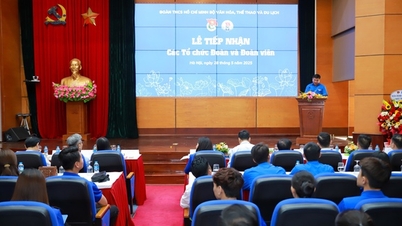

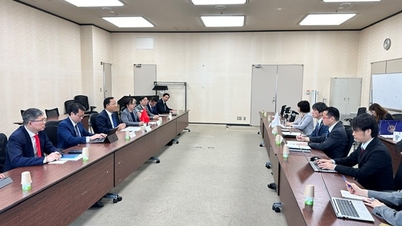

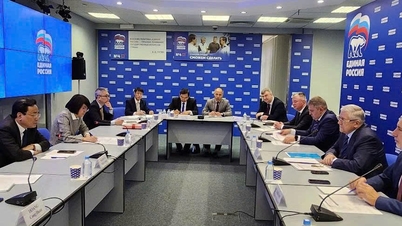

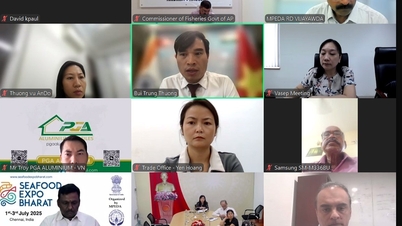
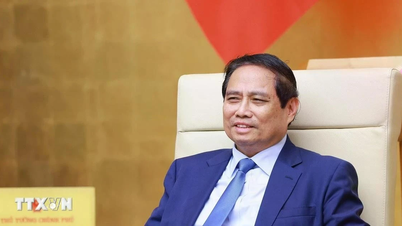

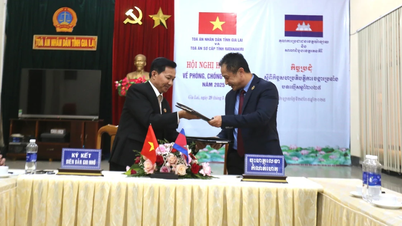



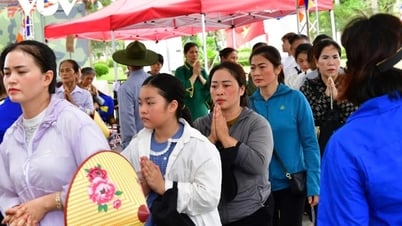




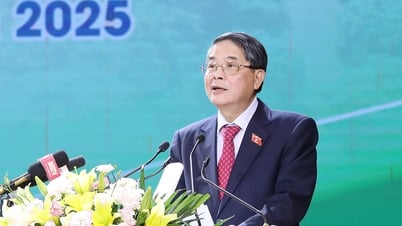







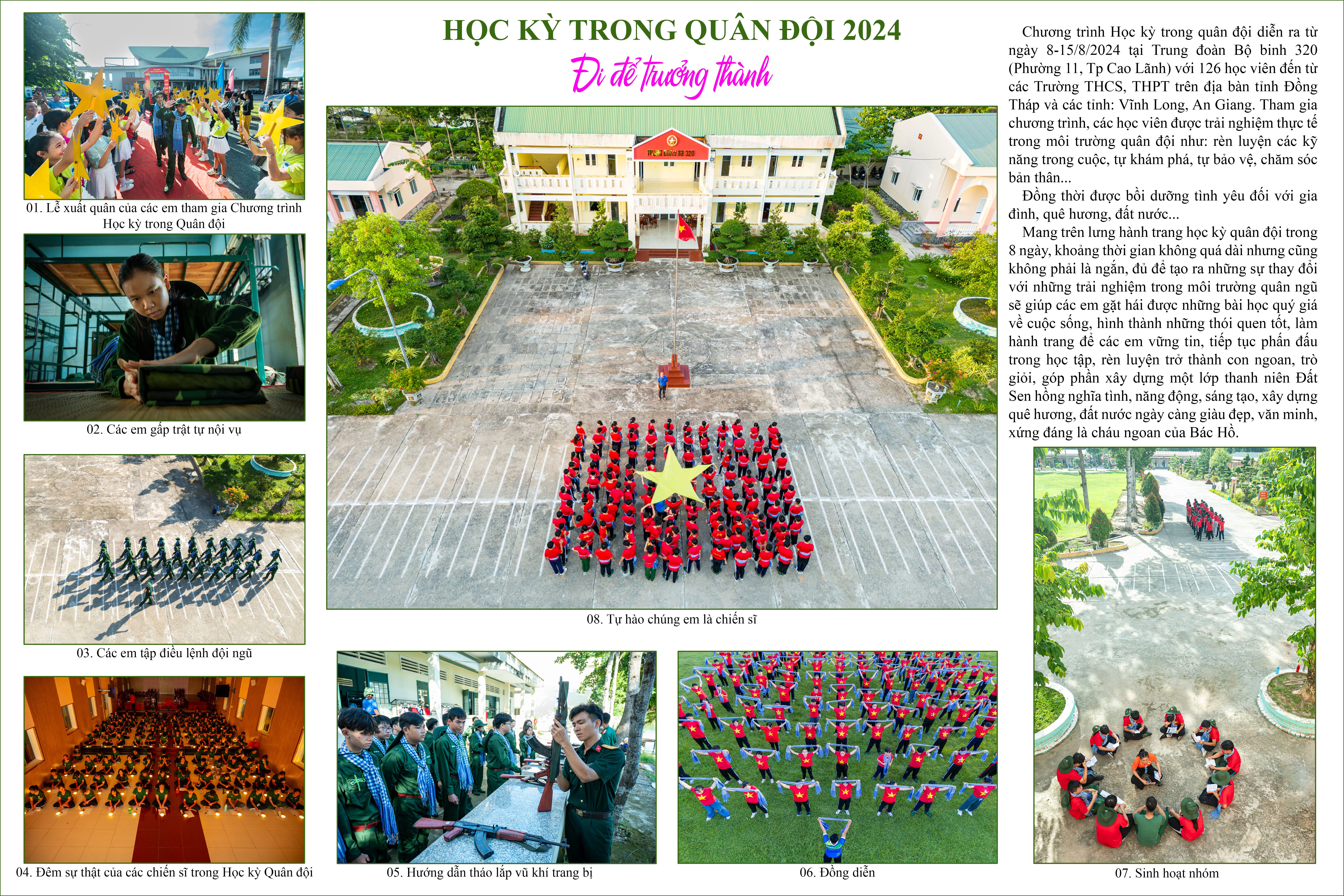



Comment (0)